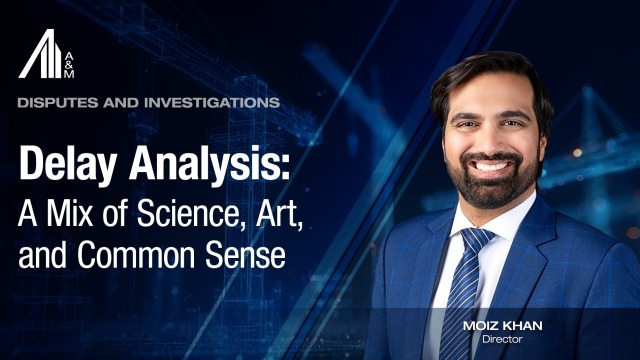Avoiding Earnout Dispute Pitfalls
When drafting the purchase agreement for the sale of a business, the buyer and the seller frequently stipulate that the purchase price will be subject to a post-closing adjustment based on accounting data, such as a working capital true-up (based on a closing date balance sheet) or an earnout provision (based on a measurement of post-closing events). These adjustment provisions can significantly impact the ultimate price the buyer pays the seller for the business.
In our July 2017 edition of Raising the Bar, Avoiding Working Capital Dispute Pitfalls, we described common disputes that arise involving working capital adjustments and steps parties can take to mitigate those issues. In this article, we focus on earnout adjustments and unique challenges they may present to buyers and sellers.
Background
An earnout provision provides for the buyer to pay additional consideration to the seller if the business subsequently meets certain performance metrics. Buyers and sellers often use earnout provisions when they cannot agree on a fixed value for a business. This may occur for a variety of reasons such as: i) the buyer believes the seller’s projections of the company’s future performance may be overly optimistic; ii) the profitability of the business is significantly reliant on future events beyond the control of the buyer or the seller; or iii) the company’s future success is dependent on the seller’s management team remaining with the company after the closing of the transaction. An earnout may help the buyer and the seller bridge the gap in the parties’ estimates of the value of the business. Earnouts may also provide the following benefits to the parties:
- Create incentives for the seller to help the business meet performance targets, if the seller is going to remain involved in the management of the company after the acquisition;
- Provide another method of financing for a portion the acquisition; and
- Potentially defer a portion of the seller’s taxes resulting from its sale of the business.
While these benefits can be useful to the parties, determining the terms of the earnout provisions can be challenging. There are several risks the parties should consider.
Earnout Performance Metrics
Parties use a wide variety of performance metrics when drafting earnout mechanisms. Many nonfinancial performance metrics exist, such as the number of new customers acquired, the business being granted regulatory approval to distribute its product, the business successfully developing a new product, etc. Although a buyer and seller could agree the earnout will be based on a nonfinancial performance metric, parties typically use financial performance metrics (e.g., revenue, net income, EBITDA, etc.).
Parties may base a financial metric on standardized accounting principles (such as GAAP or IFRS) or may use nonstandard accounting principles that are unique to the business or the transaction. Often, the parties will use a combined approach, such as establishing an earnout metric on the earnings of the business calculated in accordance with GAAP plus certain nonstandard adjustments. The likelihood the parties will have a dispute regarding the earnout amount increases as the benchmark metric becomes more complicated or more subjective (e.g., in the application of nonstandard adjustments unique to the business). As such, the parties should choose a metric that both incentivizes the parties to behave in a manner that will make the business most successful and one that clearly specifies how each element within the earnout will be calculated.
Control of the Business
Frequently, disputes arise because the buyer controls the business after the sale and can take actions that the seller believes may prevent the business from meeting the criteria necessary to achieve an earnout. To reduce this potential conflict, the parties should identify in the purchase agreement whether the buyer will be required to operate the acquired business in a specific manner during the earnout period. Examples of such specific manners include requiring the buyer to maintain a certain level of financing available to the business, to retain a minimum number of sales people, to use “commercially reasonable efforts” during the earnout period to sell products or services, to refrain from terminating certain key employees, or to agree not to have the buyer’s other subsidiaries cannibalize the revenue of the acquired business.
If the parties do specify the manner in which the buyer must run the business during the earnout period, the parties should also specify the seller’s remedy if the buyer fails to conduct the business in that manner. If the parties fail to identify this remedy in the purchase agreement, there can be significant ambiguity as to how the dispute resolution process will unfold (as discussed in the final section of this article).
Measuring the Performance of the Business
Regardless of the buyer’s conduct during the earnout period, the parties may dispute whether the business achieved an earnout under the purchase agreement’s metrics. A variety of factors (such as the effect of extraordinary items or non-recurring items, the allocation of corporate costs such as overhead, and the impact of subjective accounting estimates on the financial statements) may create disagreements.
The nature of accounting inherently requires judgments and estimates, which often spur disagreements when the buyer and the seller calculate the performance of the business under the earnout mechanism. Careful drafting of the terms of the earnout provision may help reduce such disputes. The parties should specify how critical accounting policies and estimates will be applied in determining earnout calculations, which may include identifying factors such as:
- Types of revenues included or excluded from the calculation;
- Types of expenses (including intercompany allocations from the buyer) included or excluded from the calculation;
- The methodology for making subjective accounting estimates that impact the company’s reported financial performance; and
- Any unique adjustments the parties agree will be made in performing the earnout calculations and how such adjustments will be determined.
The Books and Records of the Business
Another complicating factor is that the buyer typically controls the acquired business’ accounting records after the closing date during the earnout period. A buyer is often acquiring the business with the expectation that the acquired business could be complimentary and synergistic with the buyer’s other operations after the acquisition. As such, the buyer may intend to combine the acquired business into its own operations, making it difficult to measure separately the performance of the acquired business during the earnout period.
Ideally, the buyer would maintain entirely distinct books and records for the acquired entity. If this is not possible, the parties should take steps prior to the closing to ensure the business’ post-closing performance can be separately measured under the purchase agreement’s earnout mechanism.
The parties should specify in the purchase agreement the extent of the seller’s right to request periodic reporting of the business’ performance and its right to inspect the underlying books and records to analyze the business’ progress toward achieving the earnout.
Purchase Accounting Implications
The parties should also consider the impact that purchase accounting for business combinations (specified within U.S. GAAP under Accounting Standards Codification Topic 805) may have on the reported financial results of the acquired entity. Under purchase accounting, the buyer will revalue most assets and liabilities from historical book values to fair value at the time of acquisition. This revaluation process (e.g., a revaluation of inventory or deferred revenue) can have a significant impact on the post-closing financial results of the business (e.g., the impact of the inventory revaluation will change the post-closing cost of sales of the business) if those revaluations are pushed down to the acquired entity’s financial statements. The parties should consider the potential impact of such purchase accounting adjustments on the post-closing financial statements of the business and whether those impacts should be included when measuring the performance of the business during the earnout period.
Resolution of Disputes
Finally, the parties should specify how disputes regarding the earnout should be resolved. Frequently, the parties specify in the purchase agreement that they will mutually retain an accounting expert to resolve disputes regarding the earnout calculation. In drafting such purchase agreement provisions, the parties should consider what authority they wish to provide the accounting arbitrator.
For example, the parties may intend for the accounting arbitrator to only resolve disputes regarding the accounting measurements (e.g., the amount of actual revenue or expenses during the earnout period calculated in accordance with GAAP) used to calculate the earnout. Alternatively, the parties may intend for the accounting arbitrator to resolve all disputes relating to the earnout calculation (e.g., whether the buyer’s post-closing conduct in running the business was consistent with the purchase agreement’s requirements and the impact any inconsistencies have on the earnout calculation). By specifying the resolution process for these different types of disputes, the parties may avoid significant procedural disputes that would otherwise arise after the closing.
Conclusion
Although earnout provisions can provide buyers and sellers several benefits, they also create significant risks for each party and often lead to disputes. The parties should specify in the purchase agreement how they intend for the earnout to be measured and reported and how the business will be conducted following the closing date.
Buyers and sellers routinely engage accounting experts only after a dispute arises regarding an earnout. Retaining an expert prior to executing a purchase agreement may prove to be valuable in mitigating risks associated with ambiguous or unfavorable purchase agreement language. When retained, the expert will also add value throughout the complete adjustment process life cycle through their support in drafting purchase agreement language, preparing earnout calculations, negotiating differences, selecting an accounting arbitrator and participating in arbitration or litigation.



